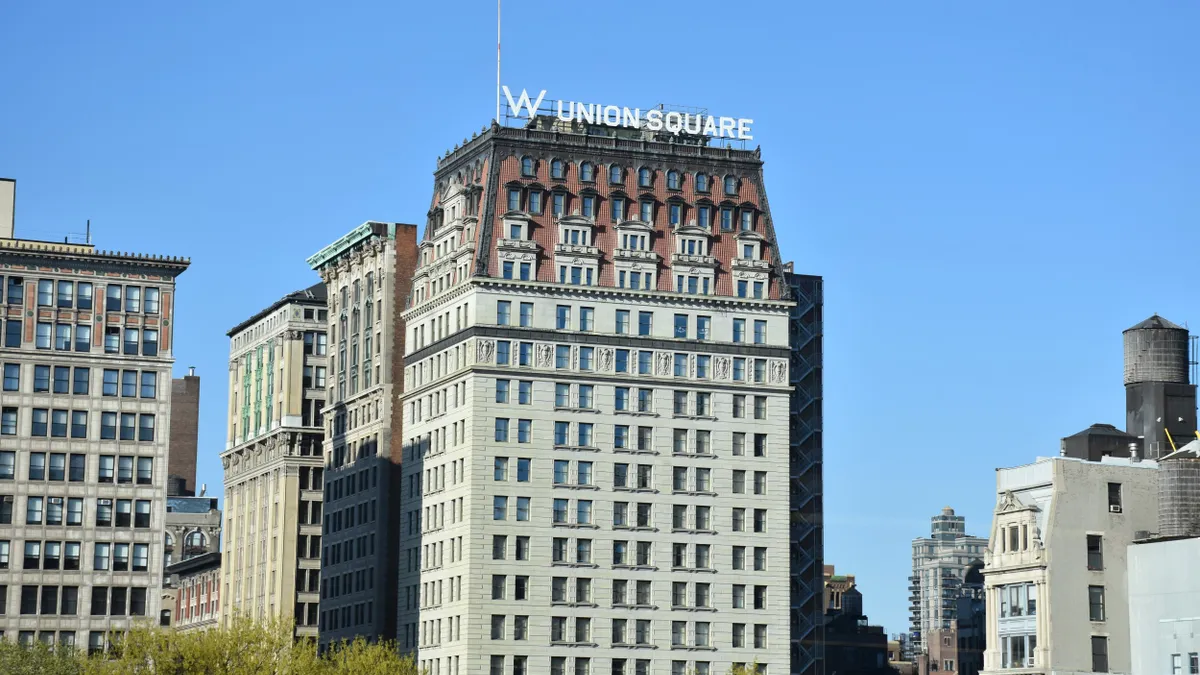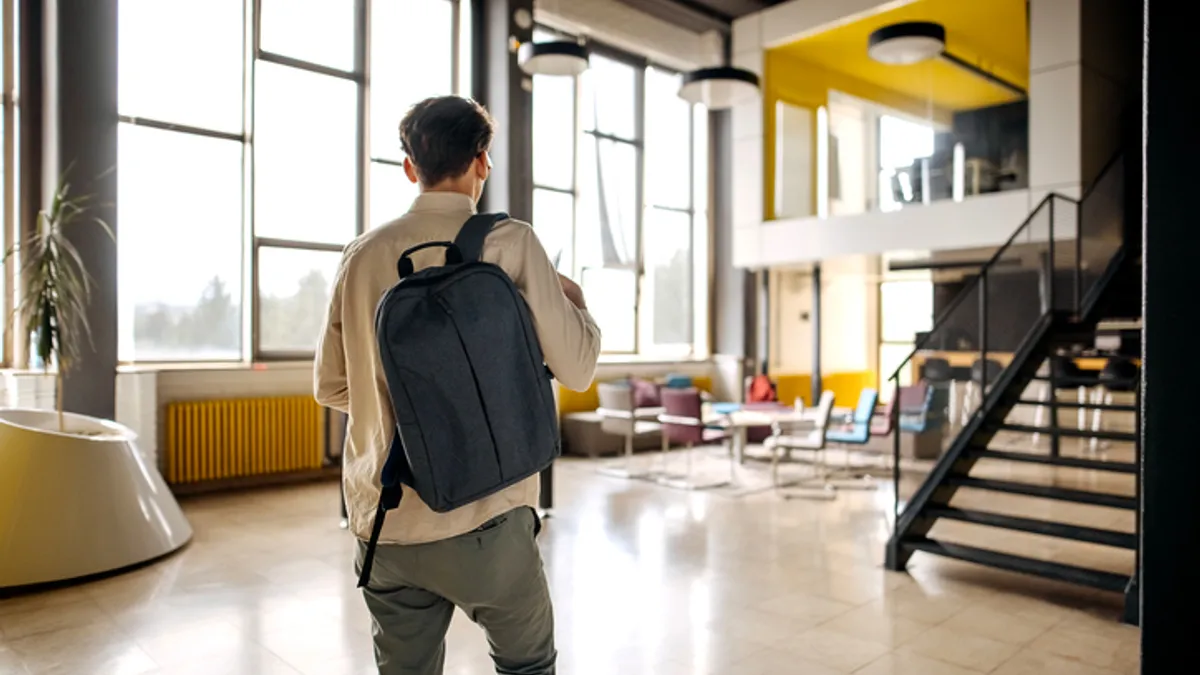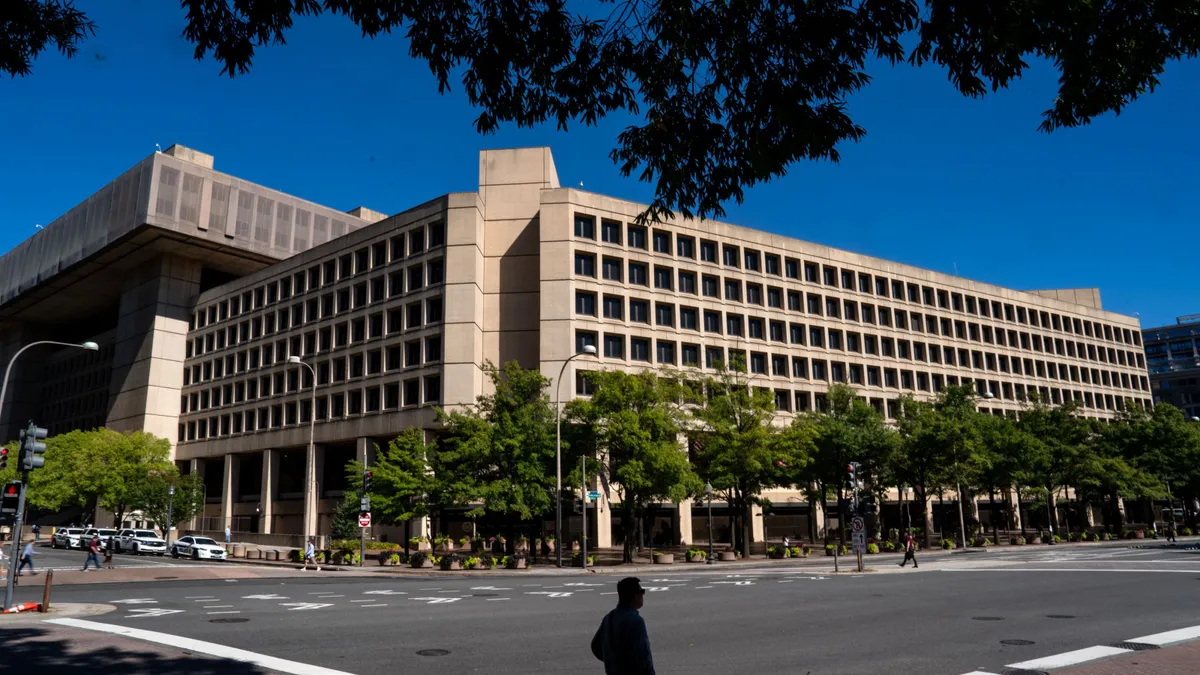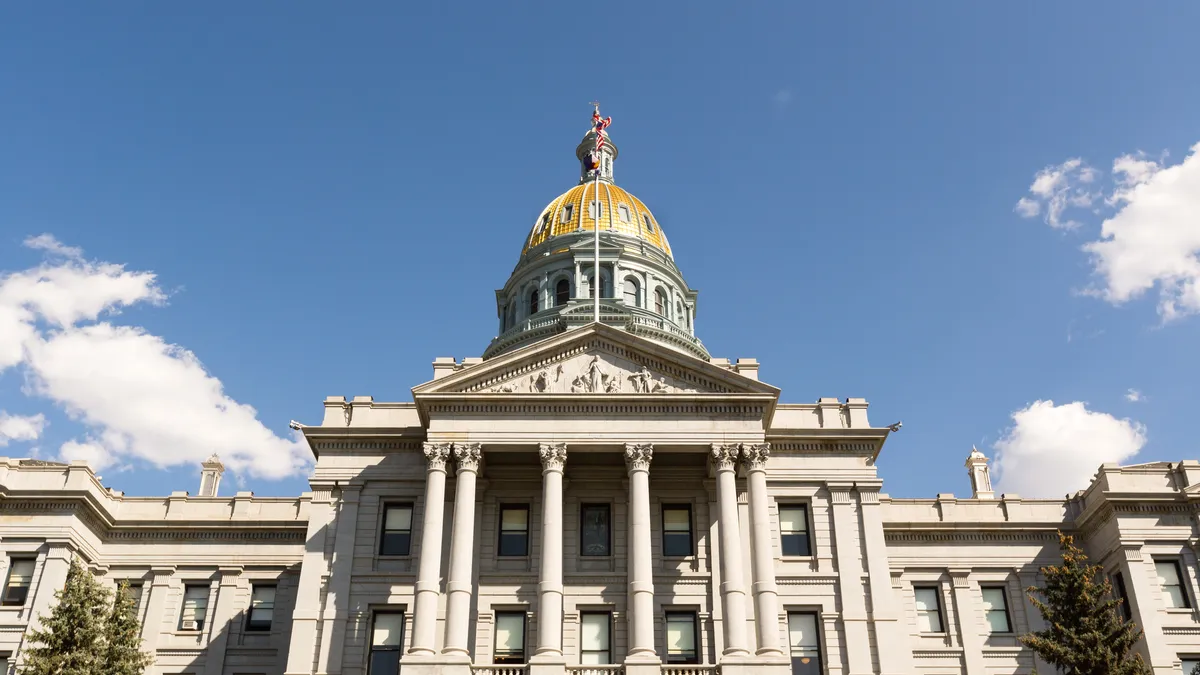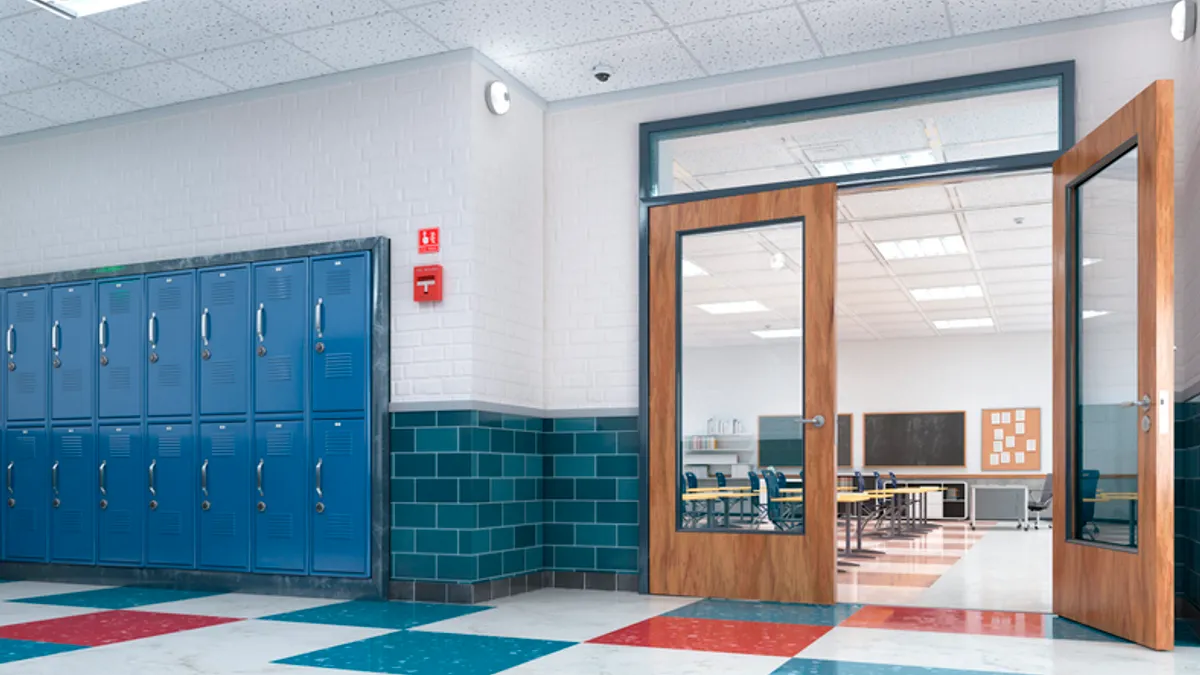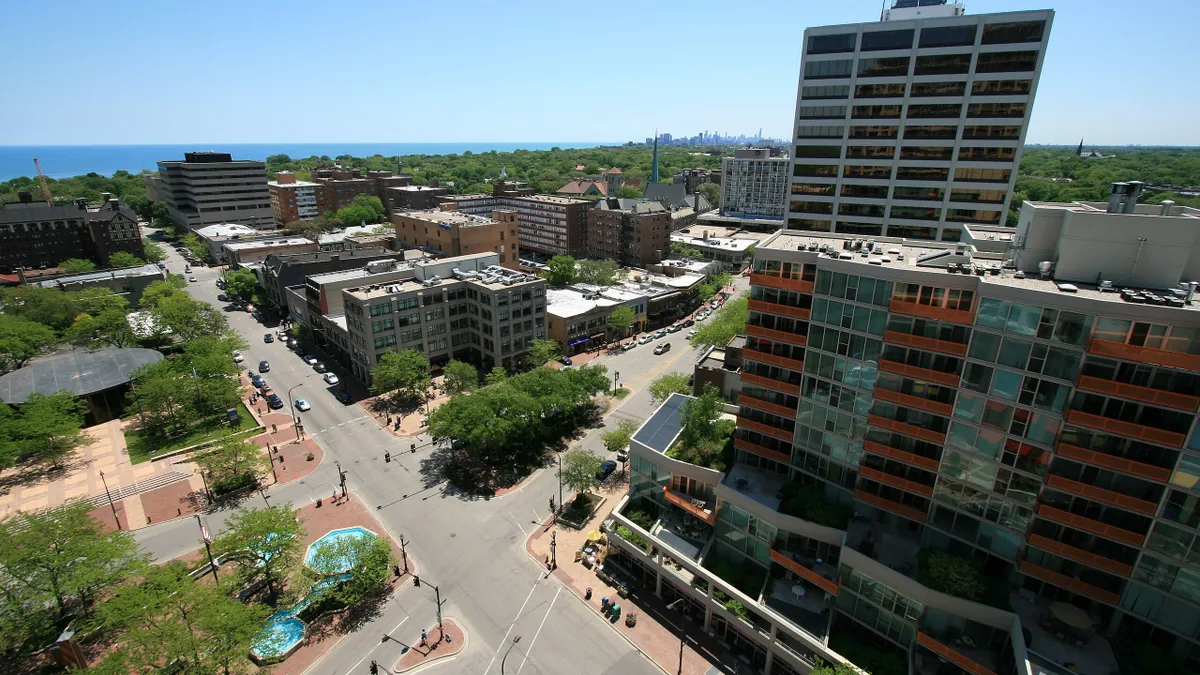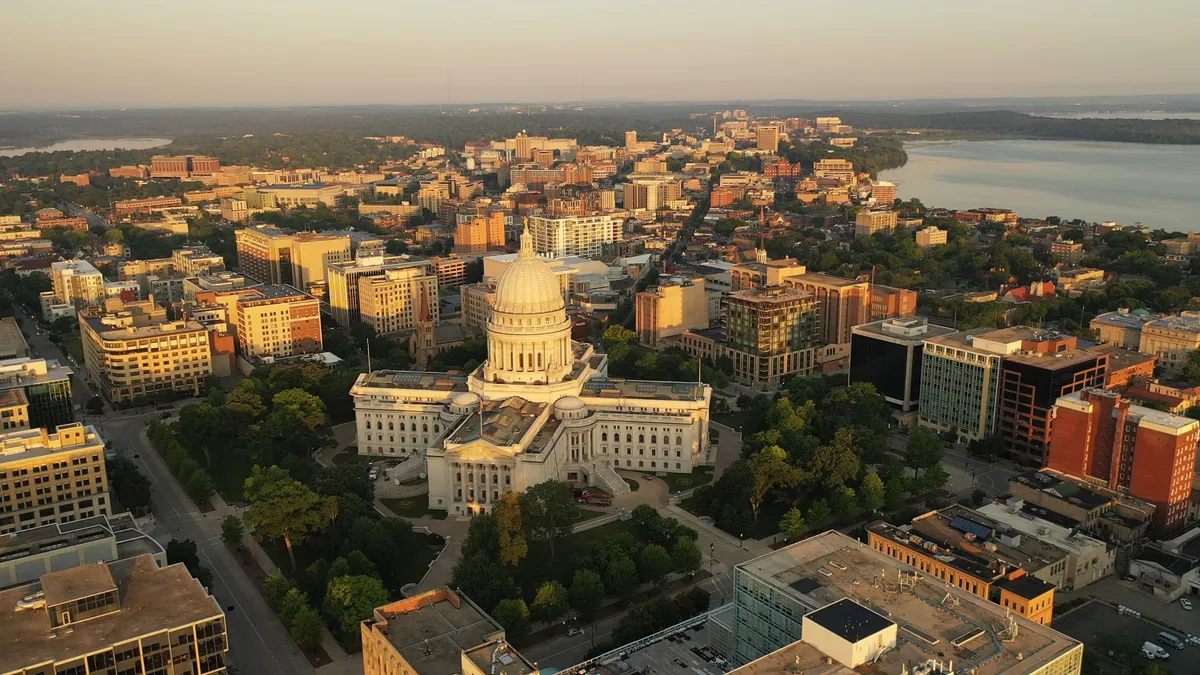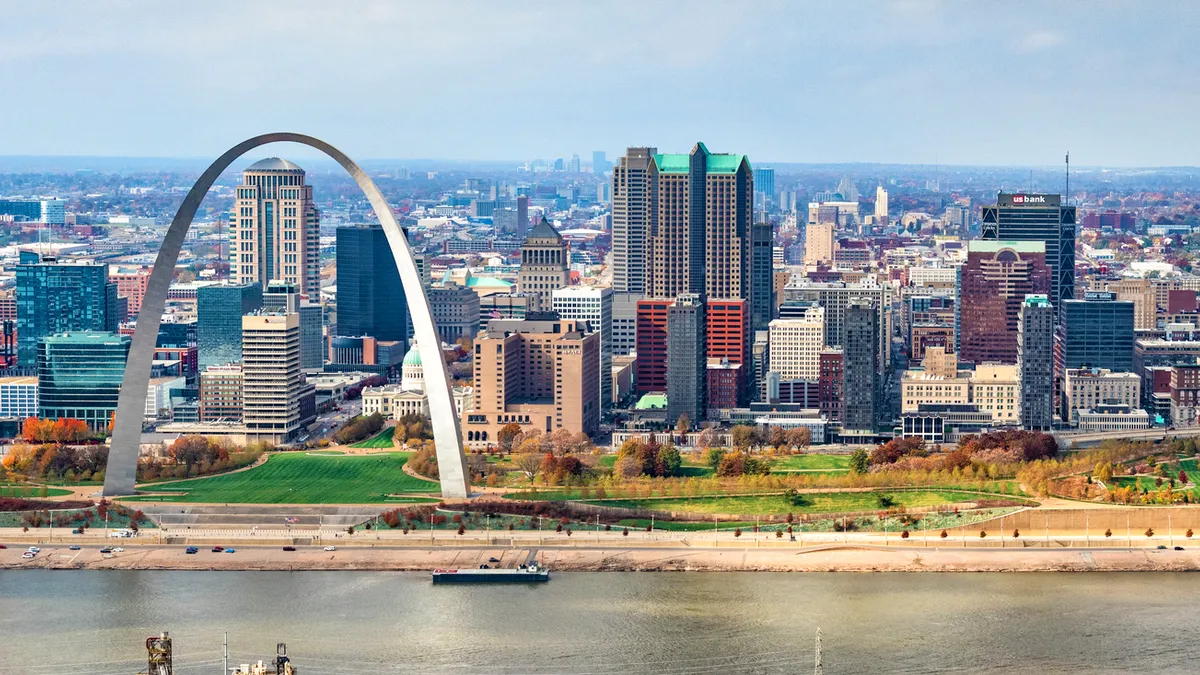Professionals across the hotel industry had mixed reactions Wednesday after the New York City Council passed Intro 991, also known as the Safe Hotels Act, by an overwhelming vote of 45-4.
The act — requiring hotel operators in New York City to obtain a license in order to operate, along with other mandates like a direct employment requirement — has garnered opposing viewpoints from hotel owners associations and local unions since it was first introduced in mid-July.
While many organizations remained resolute in either their opposition or support for the act following its passage, the Hotel Association of New York City dropped its condemnation of the act after last-minute revisions to the legislation.
Regardless of their side of the aisle, hotel industry professionals now wait to see the impact of the act’s implementation. Some say the legislation will be prosperous for New York City, while others believe it will cause “irreparable harm.”
The direct-employment issue
One of the leading issues for those in opposition of the Safe Hotels Act is that the legislation requires New York City hotels with more than 100 rooms to directly employ housekeeping and front desk workers, rather than hiring through a third-party subcontracting agency.
Laura Lee Blake, president and CEO of the Asian American Hotel Owners Association, told Hotel Dive that licensing hotels “fundamentally is not an issue, as there are many governments that issue licenses for businesses.” Rather, the issue comes when licensing is tied to or can be exempted from a collective bargaining agreement, she said.
“Traditionally, a license is dependent on a tax ID and receiving a Certificate of Occupancy, which shows you meet building and health standards,” Blake wrote in a statement to Hotel Dive. “A license should not be dependent on business models and/or employment practices. That is what makes it challenging for members as they secure financing and are unsure of the implementation process of the legislation passed by the Council.”
Following industry pushback, the New York City Council narrowed the direct employment requirement in the bill earlier this month, exempting food and beverage, security and engineering roles from the list of “core employees” that must be hired directly. Additionally, the council revised the bill to exempt hotels with 100 rooms or fewer from the direct employment requirement.
“While we acknowledge the passage of the Safe Hotels Act and the attempt to accommodate smaller properties, this revision still falls short of addressing our broader concerns with the legislation,” AAHOA Chairman Miraj S. Patel, who has continuously condemned the bill, said in a Thursday statement. “Hoteliers of all sizes deserve the flexibility to manage their operations effectively to ensure efficiency and guest satisfaction.”
AAOHA expressed “deep disappointment” in the act’s passage in a release distributed Thursday. In the release, Blake said, “By restricting the use of subcontractors, the Safe Hotels Act disrupts long-standing business models that have enabled family-owned and independent hotels to thrive.”
The organization’s statement aligned with those issued by the American Hotel & Lodging Association and the NYC Minority Hotel Association, both of which said the act’s passage will have damaging effects on New York City’s hotel industry.
Anticipated impact
AHLA Interim President and CEO Kevin Carey said in a statement obtained by Hotel Dive that the act’s passage — the result of a “rushed and haphazard legislative process” — will “do irreparable harm to the city’s hotel industry and tourism economy.”
AAHOA’s Patel echoed Carey, saying the “unintended consequences of this act will disproportionately affect minority-owned businesses, stifling entrepreneurship and innovation in the hospitality sector.”
The act’s passage is “particularly concerning for limited-service hotels,” Blake said, because those properties are “already grappling with ongoing labor shortages.”
According to NYCMHA, the act’s passage will have a severe impact on many smaller, minority-owned and family-run hotels, forcing them to close. The legislation will also “kill thousands of jobs and cause room rates across five boroughs to skyrocket, eliminating affordable options for New York City’s millions of annual tourists and visitors,” the association said in a statement obtained by Hotel Dive.
Council members that helped pass the legislation, though, believe the bill will only benefit hotels in New York City — and others agree.
A step forward
City Councilperson Shaun Abreu, who voted yes on Wednesday to the act’s passage, said in a post on the social media platform X that the legislation is “a big step forward for public safety and worker rights.” Local union the Hotel and Gaming Trades Council agreed, reposting Abreu’s post and calling the act’s passing a “major victory,” on X.
The union, which represents nearly 40,000 hotel and casino workers in New York and New Jersey, has been in support of the legislation since its inception. The union claims the bill will safeguard certain health and safety protections. The act requires New York City hotel operators to equip all “core employees” with panic buttons and provide them with human trafficking recognition training.
Disagreeing with many hotel leaders’ stance on the direct employment requirement, the union celebrated the fact that the legislation will “curb the use of exploitive subcontracting agencies in most hotels.”
One contract worker, Paula Rodriguez, a housekeeper at a hotel in Times Square who supports the Safe Hotels Act, echoed the union’s sentiment during a New York City Council public hearing on Oct. 9, saying that working for a subcontracting agency “is horrible.”
“They work us like machines, and believe they can exploit us because we are immigrants,” Rodriguez added.
For the Hotel Association of New York City, exempting smaller hotels from the direct employment requirement and therefore allowing them to continue hiring through subcontracting agencies, was, in part, what led the org to drop its opposition to the act.
“After hard-fought negotiation and necessary adjustments that exempt small hotels from onerous costs and all hotels from arbitrary licensing rules, the legislation passed today by the City Council will create a fair and practical standard for hotels that will protect both our industry and employees — and also provide the best possible experience for our guests so that New York City remains the world’s top travel destination,” HANYC said in a statement.
The Safe Hotels Act will take effect 180 days after becoming law, according to the New York City Council. NYCMHA urged NYC Mayor Eric Adams to veto Intro 991 in its Wednesday statement.



